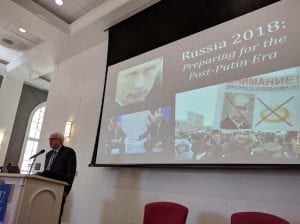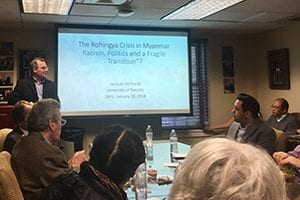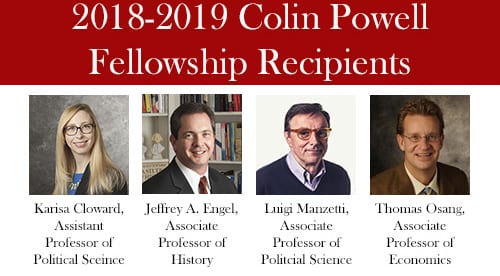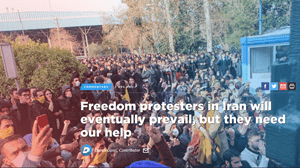Colin Powell Fellowships Announced for 2018-2019
Fellows and Associates Research Highlights: Fall 2017
| Dominique Baker, Associate |
|
Event Recap | Russia 2018: Preparing for a Post-Putin Era

gives a lecture at the Tower Center Jan. 23.
Spoiler alert: Vladimir Putin will win the 2018 Russian presidential election (if it can even be called an election), but is his support really at an all-time high? Former U.S. Ambassador to Russia John Beyrle, the final guest of the Russia Series, visited the SMU Tower Center to discuss Putin’s standing in Russia and world politics. He started his lecture with three reasons why Russia is still, and always will be, a crucial component of global politics:
James Hollifield: Why Immigration Reform is so Hard
Scholar Spotlight | Why I go on Mission Trips
HCM Tower Scholar Brian O’Donnell has gone on three mission trips to Mexico and South America. Most recently he traveled to Mexico City over fall break and worked with an organization called Hope for the Poor. The Tower Center sat down with Brian to hear about his experiences.
Tell us about working with Hope for the Poor.

Hope for the Poor, founded by Craig Johring, works with three main communities in Mexico City.
One is a community living in the city dump —
it’s a place of last resort for families if the father doesn’t want to turn to criminal activity to make money. The people living there scavenge for things they can sell. Craig goes there and brings food and sets up soccer for the kids.
Recap | The Rohingya Crisis: Racism, Politics and a Fragile Transition
More than 650,000 Rohingya people have fled the Rakhine State of Myanmar across the border to Bangladesh since a security crackdown began in August 2017. U.S. Secretary of State Rex Tillerson referred to the actions of the Myanmar armed forces as ethnic cleansing. This is the fourth wave of forced migration of the Rohingya population since the country began its democratization process in 2011. Dr. Jacques Bertrand, professor of political science at the University of Toronto, discussed the roots of this crisis and what might happen next at the SMU Tower Center Jan. 10.
Roots of Racism
To understand the resentment and hatred the Burmese feel toward the Rohingya, Bertrand argues we first need to understand colonial Burma. The British Empire began to colonize Burma in 1824.

the SMU Tower Center Jan. 10.
The Rakhine state was the first land to be annexed into the empire, and therefore experienced the highest levels of immigration of people from British India. These Indians became landowners and then continued to hire more Indians to work their land. The Burmese responded to the influx of Indian immigrants with a growing sense of nationalism and xenophobic sentiments.
Burma gained independence from the United Kingdom in 1948, and according to Bertrand, it was during this period that the Muslim Indian population in the Rakhine State identified themselves as Rohingya. The Rohingya enjoyed credibility in the democracy of the 1950s, but lost all their rights under the military regime of Ne Win in 1962. Ne Win attempted to remove all Indians from Burma in 1963-1964, claiming that they were foreigners and remnants of colonial rule. The Rohingya were then excluded from citizenship with the adoption of the 1982 citizenship law. By this law, residents had to prove they were living in Burma before colonial rule (1824) to gain citizenship. The law only recognized 135 ethnicities as national races, excluding several other minority groups from citizenship as well.
Recap | Asia’s Nuclear Challenge: North Korea, China, & the Role of Extended Deterrence
North Korea has developed nuclear capabilities that the United States assumed was out of reach for the isolated country in such a short period of time. Its advancement has changed the dialogue of policy toward the country for both the United States and China. Ken Jimbo, associate professor at Keio University, visited the SMU Tower Center to discuss Asia’s nuclear challenge in the first event of the semester Jan. 8.

